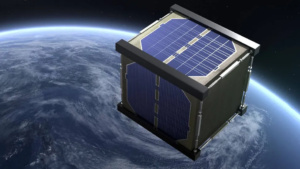NASA and the Japan Aerospace Exploration Agency (JAXA) are set to pioneer a breakthrough in sustainable space exploration by launching the world’s inaugural wooden satellite, named LignoSat, into Earth’s orbit by the summer of 2024. This collaborative endeavor aims to address the escalating issue of space debris, which currently exceeds 9,300 tons and poses significant challenges to space operations.
Constructed from resilient magnolia wood, LignoSat is designed to incinerate upon reentry into Earth’s atmosphere, minimizing the generation of space debris. The decision to use wood as the primary material was based on successful tests conducted earlier this year aboard the International Space Station (ISS). The wood samples, including cherry and birch, exhibited remarkable durability in the harsh conditions of outer space, with no signs of decomposition, warping, or surface damage despite exposure to extreme temperature fluctuations and cosmic radiation.
The choice of wood for LignoSat offers several advantages over traditional metal spacecraft. Wood’s eco-friendly and renewable nature aligns with sustainability goals, and its ability to turn into gas during reentry mitigates the creation of harmful fine particles associated with metal spacecraft. This innovative approach not only contributes to environmental conservation but also addresses concerns related to light pollution caused by reflective metal objects in orbit.

Koji Murata, a researcher at Kyoto University, expressed optimism about wood’s potential applications in space development, emphasizing its renewability and environmental compatibility. Following the launch, a comprehensive monitoring period of at least six months will assess LignoSat’s performance in space conditions, including its response to radio waves and magnetic fields. This pioneering initiative signals a promising step toward more sustainable practices in space exploration, with wood emerging as a viable and eco-friendly material for future missions, particularly in small satellites and manned space vehicles.
There are more than 9,300 tons of space junk—including defunct satellites and spent rocket stages—orbiting our planet, according to the European Space Agency. Metal spacecraft are also more expensive to manufacture and can pose a threat to the International Space Station (ISS), other spacecraft carrying humans, and even people on Earth.





